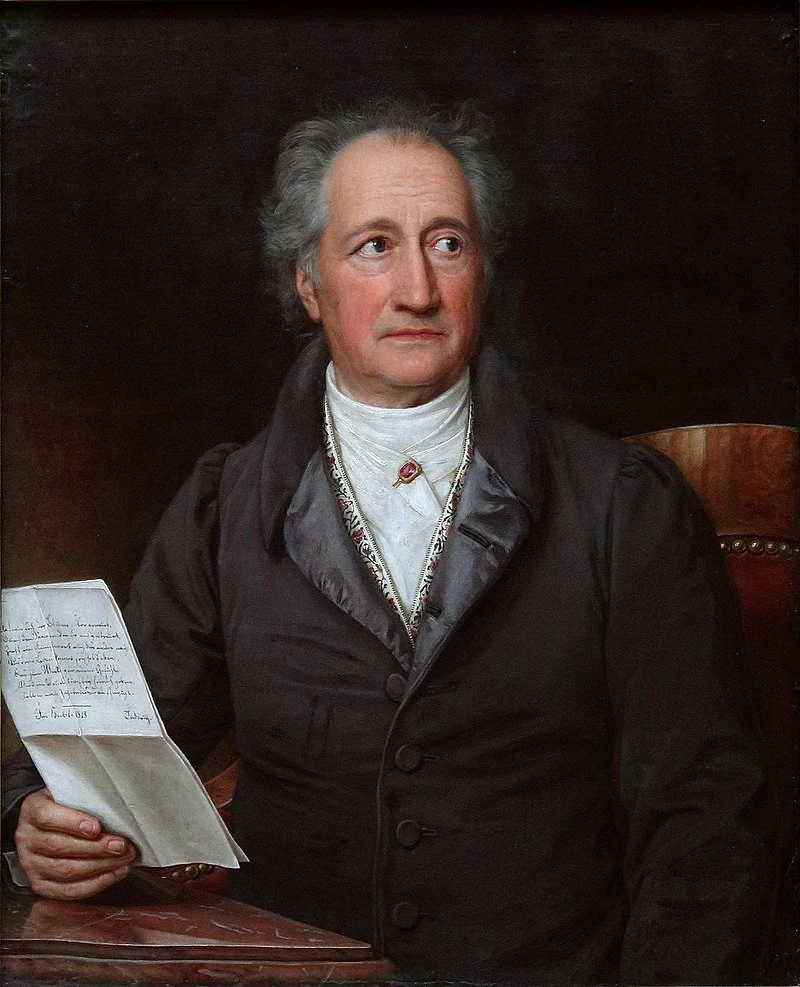
Johann Wolfgang von Goethe
28 August 1749
22 March 1832 (aged 82)
Johann Wolfgang Goethe (the “von” was only given to him in 1782) was born on August 28, 1749 in Frankfurt am Main and died on March 22, 1832 in Weimar.
The son of Imperial Councilor Johann Kaspar Goethe and Katharina Elisabeth, he studied law in Leipzig and Strasbourg from 1765 at his father’s request. After completing his studies in the fall of 1771, Goethe worked as a lawyer in Frankfurt.
But Goethe preferred to devote himself to his first drama and wrote a few poems. He also contributed to the critical organ of the Sturm und Drang movement, the “Frankfurter Gelehrten Anzeigen.”
With his first novel ” The Sorrows of Young Werther ” and the drama “Götz von Berlichingen” (both published in 1774), the 24-year-old Goethe achieved his literary breakthrough.
In 1775 he followed the call of the young Duke Carl August to the Weimar court, where he took on political tasks (in finance, mining and road construction).
Later, he was offered the directorship of the theater and oversaw the education system. In Weimar, Goethe became friends with Charlotte von Stein (1742-1827), to whom he wrote more than eight hundred letters over the years. In 1776, he was appointed Privy Legation Councilor, in 1779 Privy Councilor, and in 1782, Goethe was ennobled by Emperor Joseph II.
In September 1786, he undertook his first trip to Italy. In Rome, he visited the painters Tischbein (who painted one of the poet’s most famous portraits, “Goethe in the Campagna”) and Kauffmann. It wasn’t until June 1788 that Goethe returned to Weimar, where he became engaged to Christiane Vulpius, whom he married in 1806.
Of the five children from this union, only the firstborn August (1789-1830) survived.
Goethe relinquished all state offices except for his position as director of the court theater. His second trip to Italy followed in 1790. The period thereafter was marked by his collaboration with Schiller. The two developed a style that became known as Weimar Classicism.
After the deaths of Herder, Schiller, and Wieland, Goethe made new friends, including Humboldt, and studied Fichte’s transcendental philosophy. In 1804, Goethe was appointed Privy Councilor.
Goethe met Napoleon at the Erfurt Congress of Princes in 1808. In the same year, he published the first part of Faust. In 1812, he met the composer Beethoven while taking a spa treatment in Carlsbad.
In 1815, Goethe undertook extensive travels in the Rhine-Main region. He spent the period from August 12 to September 17, 1815, in Frankfurt with his wife, Marianne von Willemer. In December 1815, Goethe was appointed Minister of State.
After the death of his wife Christiane (June 6, 1816), Goethe withdrew from social life in Weimar and turned to his works. Goethe spent the last decade of his life working on “Wilhelm Meister’s Journeyman Years,” “Italian Journey,” his autobiography “Poetry and Truth,” and, above all, on Faust, the tragedy Part II, which he completed in 1831. On March 22, 1832, Johann Wolfgang von Goethe died at the age of 82.
His last words are said to have been “More light!”
On 26 March he was buried next to Schiller in the Weimar princely crypt.